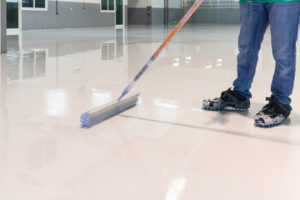Home » Articles posted by Lana Parrish
Author Archives: Lana Parrish
Guardians of Safety: Exploring the Role of Security Professionals
Security guards patrol and monitor a facility or campus using alarms, surveillance equipment, and access control. They also serve as a visible deterrent to crime.

Many security professionals choose this career because it offers specialized training, strong job growth potential, and good wages. There are several types of security jobs available.
Security guards are on the front lines of a company’s security, protecting employees, customers and visitors. Their duties and responsibilities include patrolling areas, detecting suspicious activity, acting as a liaison between building management and emergency services, maintaining access control systems, managing CCTV equipment and alarms, and recording incident reports. Some guards also provide customer service in public areas, help diffuse situations and ensure that all visitors are screened before entering a facility or event.
They also must be physically fit to perform their job, and they’re often required to participate in regular training and drills. They’re expected to be observant and aware of their surroundings at all times, which means they need excellent eyesight, hearing and a good sense of smell. This is especially important for those who work in high-risk settings such as schools, airports and hospitals.
A security guard’s primary responsibility is to act as a deterrent to criminal activity. Guards need to be able to identify unusual events and incidents, such as the strange smell of a chemical leak or the sound of a cable burning. If they detect any of these signs, they must be able to quickly locate the source and address it.
Additionally, security guards may be called on to monitor and respond to security breaches such as vandalism, sabotage, trespassing or theft. They are also responsible for the physical safety of federal facilities and land, as well as monitoring and reporting unauthorized activities to law enforcement.
Many security guards are stationed in an office setting or on a corporate campus and manage access to these areas. These guards patrol and manage security cameras, alarms and lock devices and ensure that best security practices are followed. They also record daily activity logs and maintain visitor or staff lists. Some security guards are mobile and patrol a site in a vehicle.
Residential communities and apartment complexes often leverage the skills of these professionals, who help community members conduct neighborhood watch programs, control community access, manage surveillance systems, and ensure that residents’ privacy is protected. They are also likely to be trained in responding to medical emergencies, fires and other disasters.
Loss Prevention Agents
In this role, you work with the security team to identify and deter theft or other security risks. You monitor alarm systems, review records of theft and other security incidents, testify in court cases and recommend new security procedures. You also perform surveillance to spot shoplifters, and communicate with management and employees at the store and corporate levels. You might also help train establishment workers to use video/physical monitoring equipment and install electronic article surveillance, RF tag systems or other security devices in sensitive areas.
You’ll need strong decision-making skills to do this job well and know when there is a problem, even when you don’t have all the information or details that might be available. For example, you might have to decide whether to notify authorities immediately if you notice a suspicious smell, sound or sight. You should have a deep understanding of security procedures and practices, including how to carry out surveillance without interfering with customers’ shopping experiences.
Some of your responsibilities might include logging visitor and employee credentials and checking IDs at entrances. You might also monitor security cameras and access points from a control room or interact with visitors at front desks to greet them. You can be employed by a particular business or location, such as an office building or airport, or you might be on a contract to patrol multiple locations for a security company.
A security guard specializing in loss prevention may patrol an entire store and act as the first line of defense against shoplifting. You must be trained in the specific types of items and clothing that are most commonly stolen, as you patrol the premises looking for suspects and acting quickly to prevent losses. You might also train other security guards in the store to follow established procedures and use de-escalation techniques for handling disagreements, disturbances and disputes.
Another area of specialization for security guards is working in a hospital or healthcare setting. These guards focus on ensuring the safety of patients, visitors and staff, and manage access control at entrances as they conduct security checks. You might also assist in patient management, and respond to emergency situations or disturbances as needed.
Retail Guards
Retail security guards perform a variety of duties and responsibilities to help ensure safety and protect property in the retail environment. Their presence provides a visible deterrent to criminal activity, including shoplifting and theft, while they manage access control by screening people and monitoring alarms. They also patrol and monitor surveillance systems, identifying any security threats or breaches. They may also be called upon to provide customer assistance by directing or answering questions, enhancing the shopping experience for patrons. Additionally, they are trained in conflict resolution and can de-escalate disputes between customers or between a customer and a store employee.
A retail security guard job can be very rewarding for those with the right skills and personality. However, some states, such as California, can present challenges for those who want to become a retail security guard. The high cost of living in the state can make it difficult for guards to earn a reasonable wage.
In addition to providing visible deterrence, retail security guards are responsible for a number of other tasks that can include inspecting merchandise for defects, reporting any incidents to management or law enforcement, and escorting suspects to law enforcement officials if necessary. Additionally, they are required to maintain awareness of unauthorized personnel in the facility and take steps to keep them out, such as enforcing social distancing measures or ensuring employees wear the proper identification.
Security guards in the retail industry must also be ready for situations such as natural disasters or fires, and they must know how to react quickly to these events. They may need to assist customers with relocating to safe areas, and they must also be prepared for power outages or other emergencies that could affect operations.
While the overall crime rate in the United States is on the decline, retail property burglary and other crimes continue to be a concern for many retailers. As a result, there is still an ongoing need for qualified retail security guards. Whether they are working in a mall, grocery store, or other retail establishment, security guards will use their training and experience to prevent crime and keep employees and patrons safe.
Executive Guards
Executive guards work with high-profile individuals and VIPs. They develop and manage protective strategies for their clients and coordinate with other security and law enforcement officials. They must be able to stay calm and think clearly in stressful situations. They are required to pass extensive background checks and to be armed, depending on the level of protection.
Their duties and responsibilities include developing advance safety surveys, route reconnaissance and planning, as well as providing transportation security. They are also responsible for ensuring the safe operation of security equipment, including weapons and armored vehicles. They also act as liaisons with other security personnel and public safety officers and oversee all investigative efforts related to executive protection.
Most of these operatives have a police or military background and must complete specialized training to be eligible for the job. They are licensed and regulated by the state or province in which they work, and promotions are based on their performance. They must be fluent in the language of their area and be able to communicate with people from all walks of life. They must also be able to perform basic first aid and CPR.
Another important aspect of this job is the ability to remain discreet. VIPs such as movie stars, politicians and CEOs usually have teams of people around them that need to be kept safe, including assistants, stylists and others. An executive protection operative will typically try to blend in with these teams rather than drawing attention to themselves, so they will dress and behave more like members of the client’s office staff or entourage.
The skills needed to perform this kind of work include staying calm and thinking clearly, as well as identifying and solving problems quickly. They must be able to interact with people from all walks of life and to remain professional in difficult or tense situations. They are often required to use phones, two-way radios, computers and other security technology and must have the ability to solve complex problems independently. They must also be able to act as leaders in everyday routine inspections or tense situations such as robberies or rescue operations.
